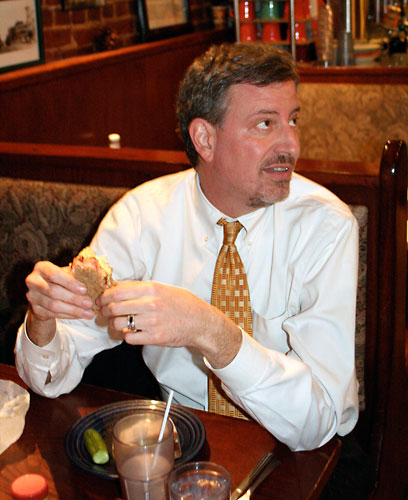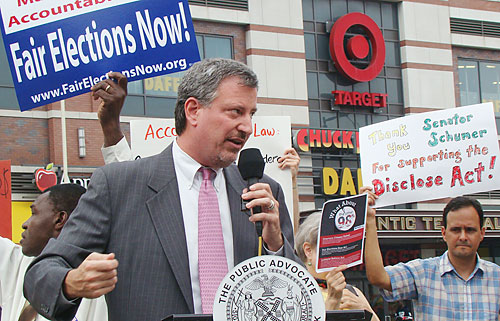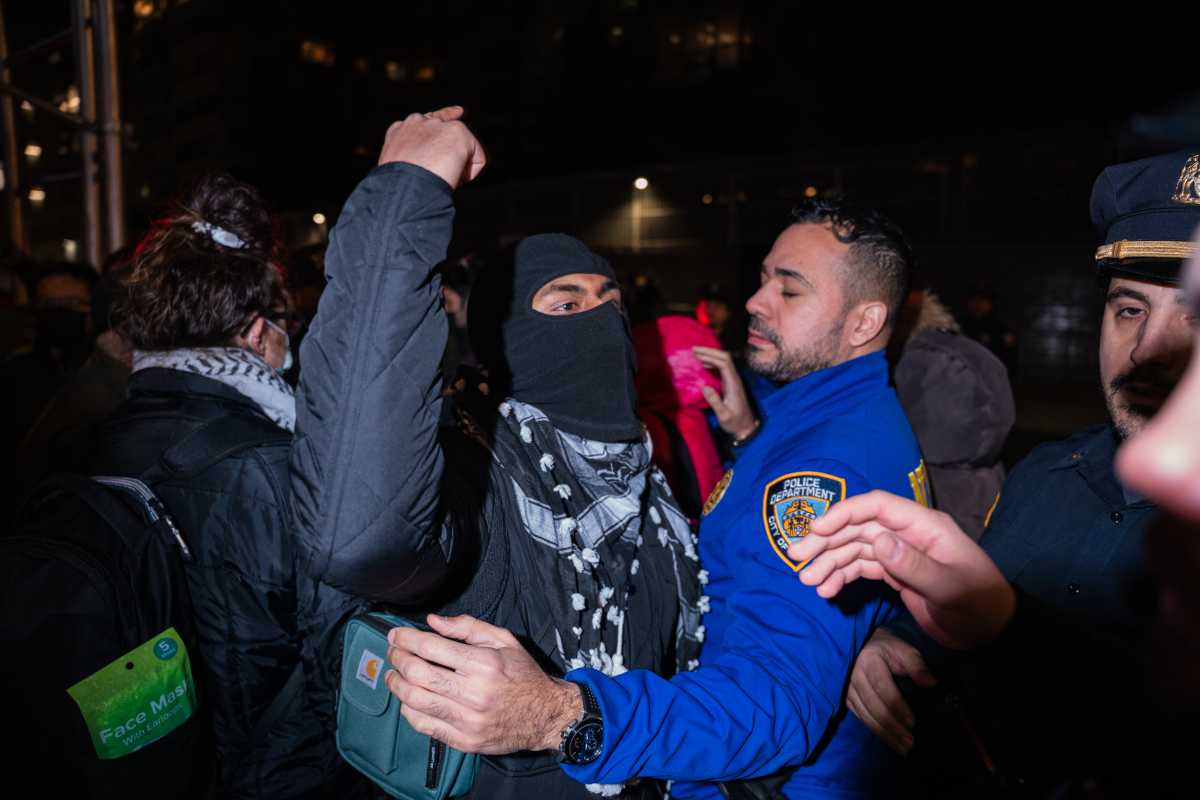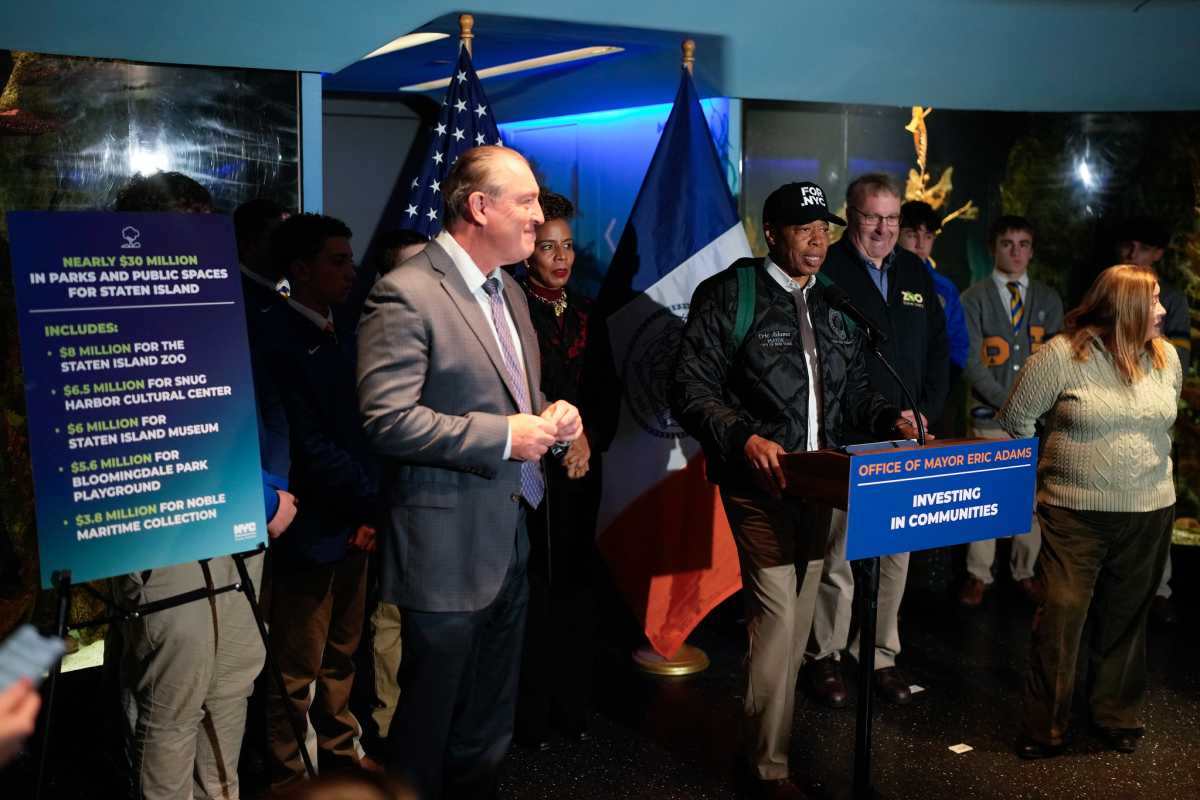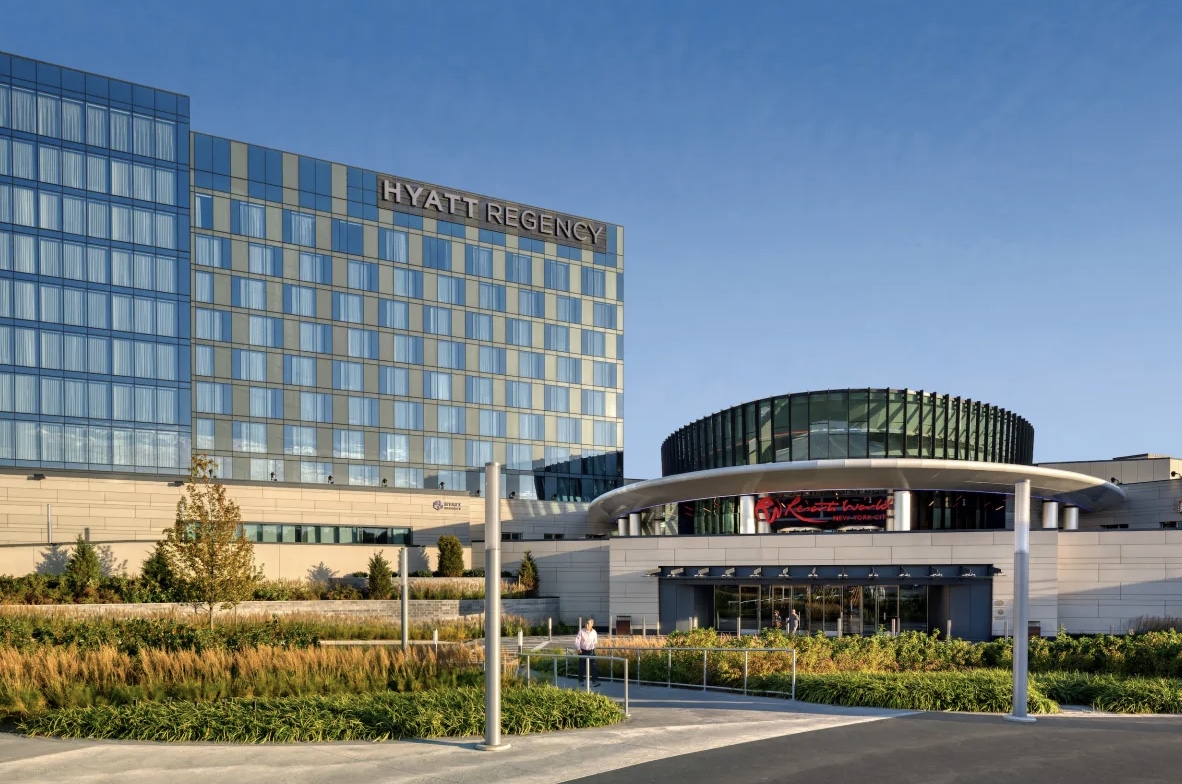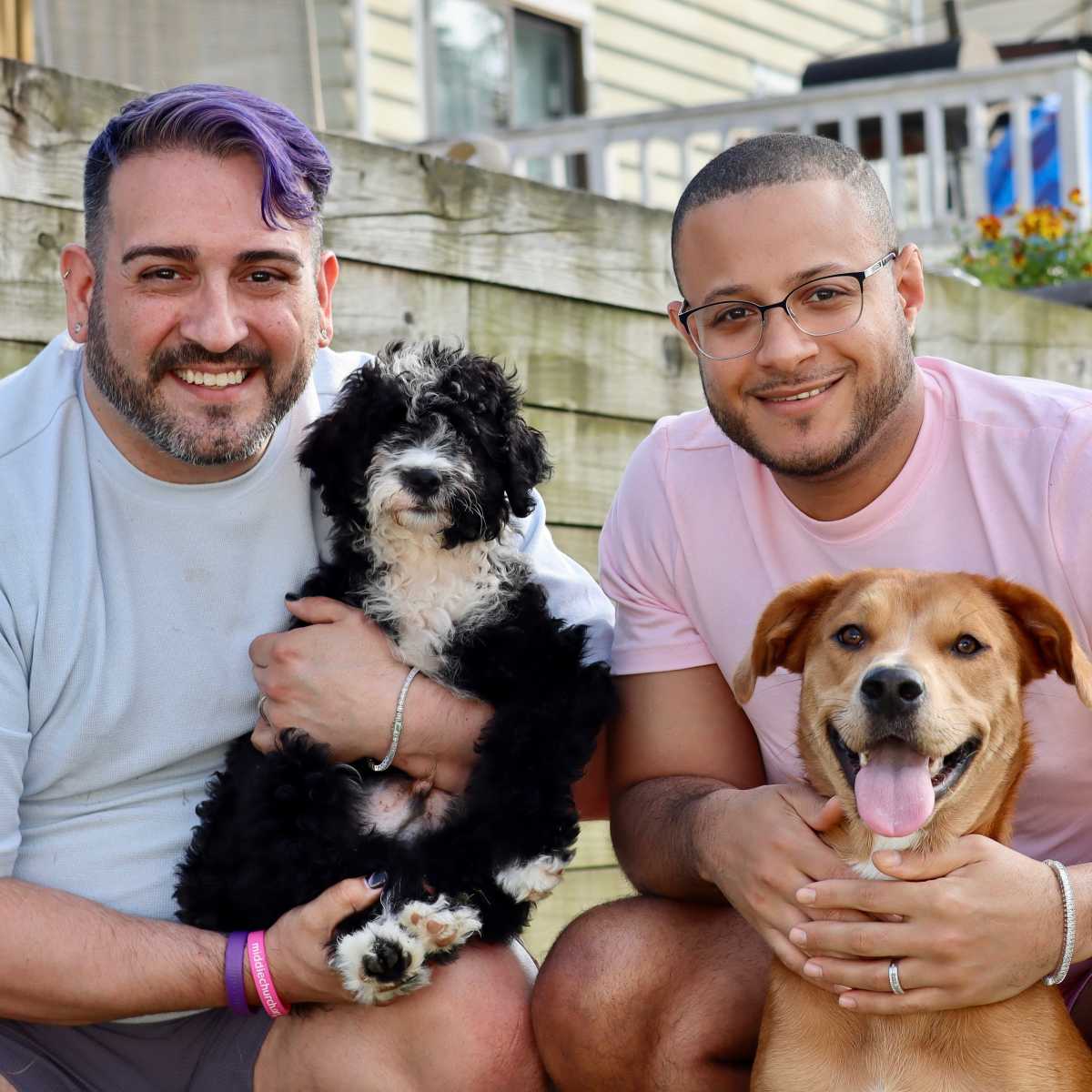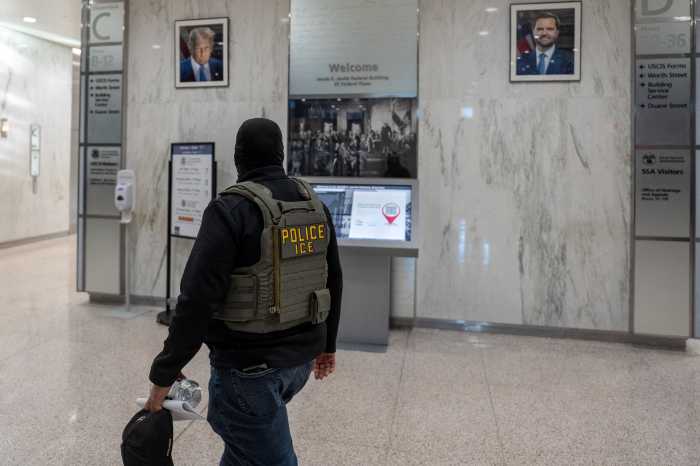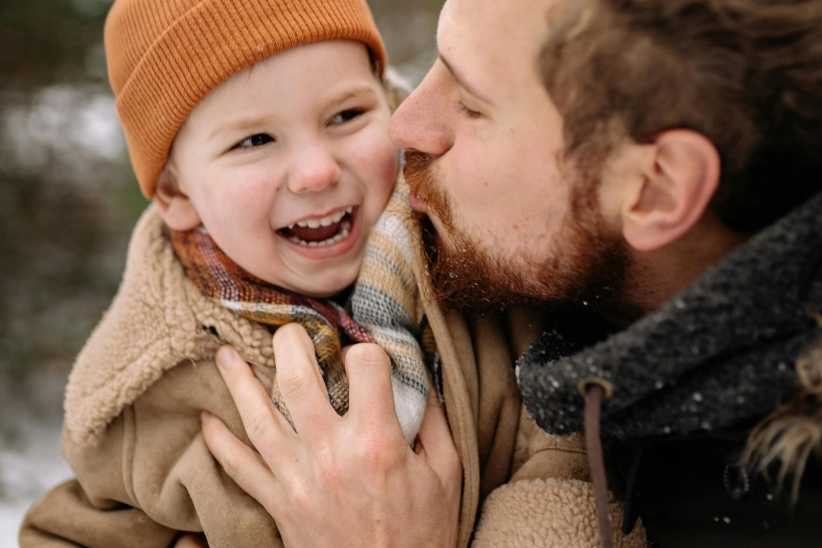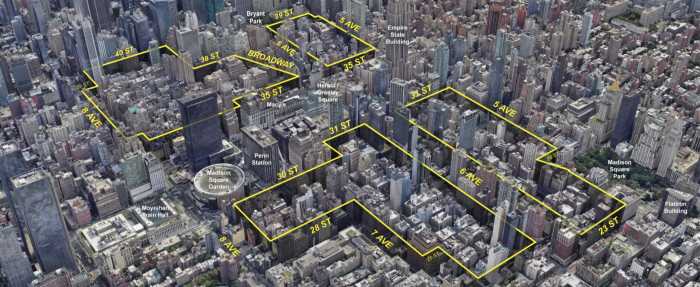Bill DeBlasio is running for mayor. He’s also a Park Slope dad. We took a moment to chat with the Public Advocate about why he truly is an “outer-borough working dad,” how he feels about bike lanes, and whether or not he is a member of the Park Slope Food Co-op.
Eli Rosenberg: Giuliani is remembered for cleaning up the city. Bloomberg perhaps for making streets more bike and pedestrian friendly. How do you make your mark on the city if you’re elected mayor?
Bill DeBlasio: There’s a little bit of a Roman emperor problem with a lot of public leaders and they’re most concerned with the physical structures they create, when in fact the challenge right now is more of an intellectual one. We have to try to prepare our kids for a 21st century economy. I proposed an aggressive plan to do that, by focusing on early childhood education and after-school programs, and it’s controversial for some because it would require a tax on the wealthy to achieve. Part of why Bloomberg has been less effective on schools in recent years is that I don’t think he feels the urgency of folks who are actually connected to the school system.
ER: With Ed Koch’s passing, it’s hard not to think about the legacy of New York City mayors in an election year. Which former mayor is your biggest role model?
BD: Unquestionably [Fiorello] La Guardia. He was a unifier at a time when there were real difficulties and tensions in the city and he served throughout the Depression and he never acted like the economic reality wasn’t his responsibility. He also had tremendous compassion. He lived among the people and believed in being out and accessible — something Koch did very well, also.
ER: Bloomberg has fully embraced the model of public-private partnerships in places like Brooklyn Bridge Park, Downtown and Atlantic Yards. Is this a model of governing that you support?
BD: I support it as long as there is real oversight and some hard bargaining with regards to the private sector. With Brooklyn Bridge Park it was necessary to guarantee that we could have a park that was self-sustained. What’s happened to the city budget, the federal budget, etc., there was no way to assume that there would be the money necessary to run the park properly unless there was private funding. So that was a case of a productive partnership. But I think that in every one of them you have to make sure the public is getting full value from its private partners and that it’s a carefully monitored deal.
ER: That’s always the talk, but not always the reality. How do you improve that process?
BD: I’m a big believer in using the development process to achieve more affordable housing. In the Bloomberg years, a lot of times developers have not been pushed hard enough for the maximum amount of affordable housing, or affordable housing commitments were made and not followed through on. And I think part of it is the aspect of transparency. I would like to see any sort of agreements made public, and constantly assessed in a very public manner to see that they’re lived up to.
ER: You kicked off your campaign at your home in Park Slope where your wife called you an “outer-borough working dad.” Some people might say that an 11th Street address doesn’t exactly qualify you as “outer-borough” these days.

BD: That’s crazy. We moved here in 1992. This was long before I had any gumption of running for office. It’s pricier now, but there’s still a lot of old-timers in the Slope, still a lot of working and middle-class people, and a lot of focus on public schools and small businesses. We’re homeowners, our daughter just graduated, but for 14 years now our kids have gone to public school. Chirlane and I are like so many other middle-class folks that have had to figure out a way to find childcare we could afford when our kids were younger, and balance all the pieces of our lives. That’s what people are dealing with in the outer boroughs. I’ve been in our neighborhood now [for what] will be 21 years in March. And our kids were born at Methodist [Hospital], I was the little league coach with the 78th Precinct Youth Council, and we’ve really steeped ourselves in the life of the neighborhood.
ER: Are you now, or have you ever been a card-carrying member of the Park Slope Food Co-op?
BD: I am not a member of the Co-op. Got close to doing it a few times, but never could figure out how to handle the time commitment.
ER: Brooklyn College is sponsoring a talk by the BDS [boycott, divestment and sanctions] Movement that is causing an uproar. What’s your take — academic freedom or inappropriate use of public funds?
BD: Brooklyn College is making a huge mistake. I disagree fundamentally with the divestment movement. By definition we have to stand by Israel and this movement is aimed at undermining the Israeli economy, which is outrageous. The answer to the freedom of speech issue is, if Brooklyn College wants to officially host the event, then host both sides. I want all voices to be heard, but for a public institution to sponsor only one side — the anti-Israeli side — that’s unfair.
ER: If elected, would you continue setting aside more public space for bicycles and pedestrians?
BD: The motivation [for bike lanes] has been noble but the approach has often been without the kind of communication with the community that I’d like. What I’d say is that let’s look at actual evidence, not biased evidence, but actual evidence about what has happened with each of them. Where they’ve worked, great, let’s keep them. Where they haven’t worked let’s revise them or change them.
ER: Final question: Nets or Knicks?
BD: If that’s the choice, Nets, unquestionably.
Reach reporter Eli Rosenberg at erosenberg@cnglocal.com or by calling (718) 260-2531. And follow him at twitter.com/emrosenberg.
